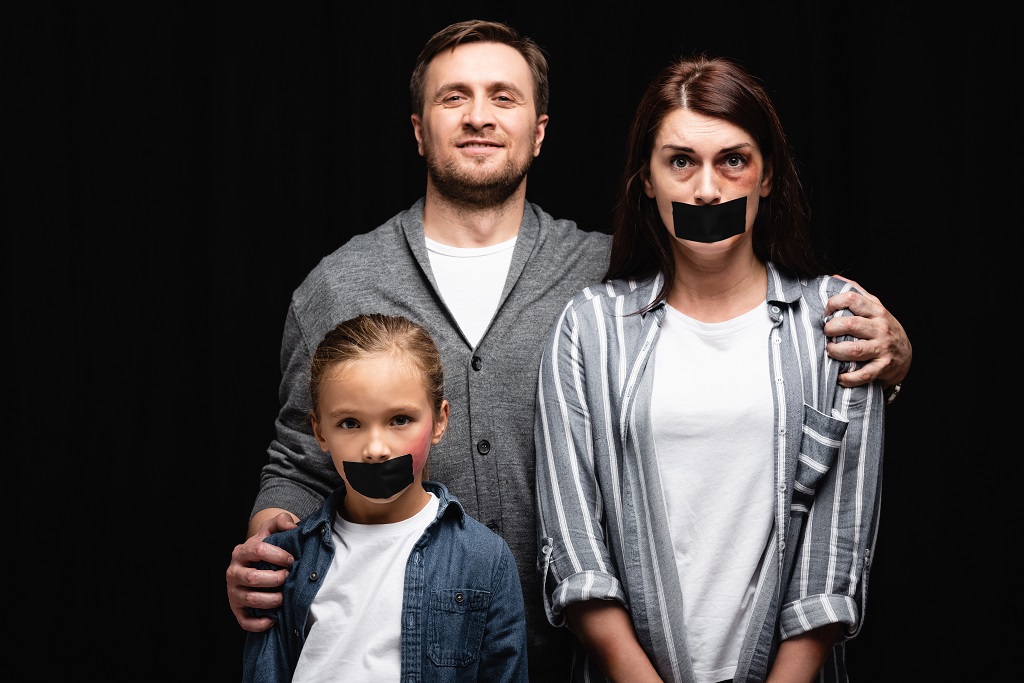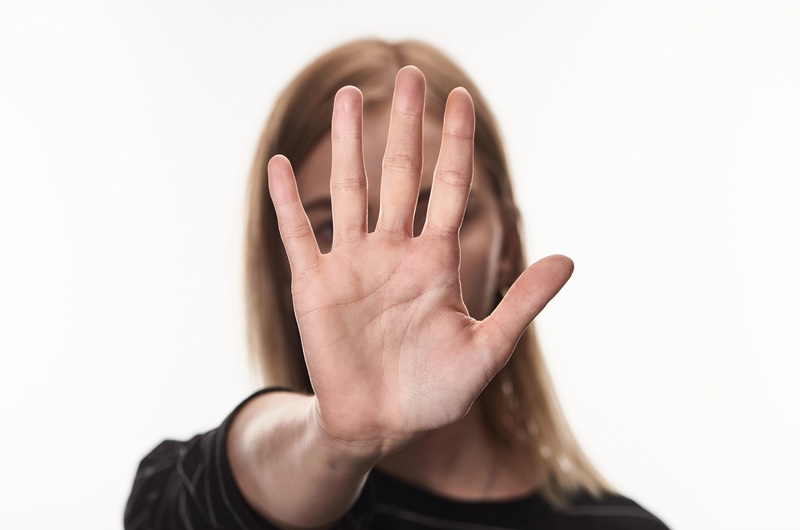My Partner Is Abusing Me: Can I Apply For VAWA?
Spanish Video Above Translated In English Below
It is essential to be aware of your legal options if you find yourself in a position where your partner is assaulting you. These avenues protect you and help you seek justice. One such avenue is the Violence Against Women Act (VAWA), which provides crucial support for victims of domestic violence.
In this article, you will explore the definition of VAWA and its eligibility criteria. It also answers if children and parents are qualified for VAWA.

What Is VAWA?
Bill Clinton signed the Violence Against Women Act (VAWA) on September 13, 1994. VAWA aims to combat domestic violence, sexual assault, and stalking, making it a landmark legislation. It also includes other forms of gender-based violence in the United States.
VAWA enhances protection and support for victims while holding perpetrators accountable for their actions. It empowers victims of domestic violence by enabling them to assert their rights. They pursue legal remedies without needing assistance or support from their abuser.
It is particularly crucial in situations where the abuser may use their immigration status as a means of control. It includes exploiting the victim’s fear of deportation or other immigration-related consequences.
VAWA is a vital pathway for survivors to break free from abusive relationships. It enables victims to independently apply for legal status and maintain their immigration status within the United States.
Through the VAWA program, victims can seek justice, protection, and stability, regardless of their abuser’s citizenship or permanent residency status. It aims to provide a way for victims to reclaim their autonomy and rebuild their lives on their terms.
In such situations, lawyers provide valuable support, guidance, and legal representation to individuals who have experienced domestic violence. Additionally, it is essential to understand the effects of separation in a VAWA case. It will help individuals comprehend the significance of gathering compelling evidence and accessing the necessary protections.
Is Separation Possible In A VAWA Case?
Is it possible for an individual experiencing domestic violence to separate from their abusive partner? Can an individual who is in the process of obtaining their Green Card through marriage apply for relief under VAWA?
It is possible to convert the case from a marriage-based application to a VAWA self-petition. Many individuals facing domestic violence have transitioned, and the lawyer has firsthand experience with such cases.
Lawyers have successfully guided clients through shifting their applications to VAWA-based cases. They ensure that they consider their particular circumstances.
Changing the case needs further discussion, particularly if the individual has a pending Form I-485 for permanent residency. It may be necessary to request a pause until the VAWA petition is approved. This approach avoids redundant fees and underscores the importance of assessing specific case details through comprehensive discussions.
It is essential to consider both the effect of separation and the available evidence and protection. Understanding the impact of separation on the case allows for informed decision-making. However, gathering compelling evidence and accessing the necessary protections ensures the safety and well-being of survivors.
What Is The Significance Of Evidence & Protection?
When it comes to evidence for a VAWA case, individuals may believe they need formal reports or hospital records to support their application. However, in many cases, such concrete evidence may not be available. Instead, applicants can utilize their testimony to narrate the story of their relationship.
Evidence in a VAWA case can include various types of documentation. It consists of images, texts, social media threats, and letters from witnesses. These witnesses can be neighbors, friends, or family members who know the situation. Photos can show visible injuries or the aftermath of abusive incidents.
Messages or communications can provide proof of threats or coercive control. Witness accounts may contribute to the evidence supporting the applicant’s assertions. Collecting this evidence is essential to strengthen the case and present a comprehensive picture of the abusive situation.
It demonstrates numerous ways to acquire information and submit a compelling argument. It is not always necessary to have extensive evidence to succeed. In terms of protection for individuals, It is vital to understand that there are legal safeguards in place to ensure the applicant’s safety.
These protections prevent immigration agencies from discussing the applicant or their case with the abuser. Even if the abuser threatens to report the applicant’s undocumented status, immigration is legally bound to refuse that information.
It is essential to understand the evidence and protection in applying VAWA while experiencing abuse from a partner. With this, it is also crucial to understand if children are also qualified for VAWA.
Do Children Qualify For VAWA If Abused By Their Parents?
Various forms of abuse can subject children to severe and long-lasting impacts on their well-being. The VAWA program recognizes and addresses several types of abuse children may experience. These include physical, emotional, verbal, financial, and sexual abuse.
These forms of abuse can occur within different family dynamics, involving stepfathers, stepmothers, fathers, mothers, or biological parents. The VAWA program offers a lifeline for children who have suffered abuse. It provides them with the opportunity to seek protection and support.
Children under 21 can apply for VAWA and access the resources and assistance available to abuse survivors. These children can take a crucial step towards reclaiming their safety, well-being, and future.
It is important to emphasize that VAWA addresses all forms of abuse experienced by children within their families. It offers support and assistance to children who have been victims of abuse. It is regardless of the specific type of abuse they have endured. It allows them to access support services, counseling, legal remedies, and the chance to secure their well-being.
But one may wonder, what if parents are the ones who are abused? Would they also qualify for VAWA?
Do Parents Qualify For VAWA If Their Children Abuse Them?
Parents qualify for VAWA if they are abused by their children. It is an important aspect to consider, as it highlights a challenge within immigration laws. Many people are aware that children born in the United States can petition their parents once they turn 21. However, not everyone knows about the limitations imposed by the 21-year-old rule.
Parents are unable to adjust their status through their children. It is if parents entered the United States without a visa over 21 years ago. It is because a pardon related to their entry without a Visa is required, and their children cannot provide it.
However, if the children have been abusive, the parents can still apply for VAWA. It is possible if the abuse is to a small extent, such as shouting or using offensive language. The parents can apply for VAWA after the children turn 21, regardless of their entry without a Visa.
VAWA does not require the same pardon for individuals who entered without a Visa. Therefore, parents who cannot adjust their status through their children due to entry circumstances have another option. They may be able to apply or adjust their status through VAWA, even if they entered without a Visa.
It is crucial to seek legal consultation to discuss these specific issues. It will enable the lawyer to determine if VAWA can be pursued as an option for the parents’ adjustment of status.
What Is The Duration For VAWA Application?
When seeking VAWA benefits, time is of the essence, although there is no set deadline for submitting your application. It is crucial to file within two years of the divorce’s finalization. If your marriage is the basis of your application, it is. This timeline emphasizes how essential it is to act quickly to obtain the benefits and possibilities provided under VAWA.

By consulting with an immigration attorney, you can navigate the complexities of the application process. You can determine the most suitable timing for your specific circumstances. An experienced attorney will guide you through the necessary steps. They ensure you meet the requirements and submit your application within the appropriate time frame.
How Does An Immigration Attorney Help You?
Attorneys at Lincoln-Goldfinch Law – Abogados de Inmigración, such as Attorney Kate, play a crucial role in supporting individuals. These are those who are facing domestic violence within the context of immigration. They offer invaluable assistance through programs like the Violence Against Women Act (VAWA).
Through confidential consultations, they create a safe space for clients to openly share their experiences. They ensure that they feel heard and supported.
Attorney Kate, with a deep understanding of immigration laws, guides individuals through the eligibility requirements for VAWA. They provide strategic advice tailored to each client’s unique situation. It includes potential options for transitioning from a marriage-based case to a VAWA case.
They ensure that survivors of abuse have a clear understanding of their legal rights. They also ensure the steps necessary to seek the protection and legal status they deserve.
With compassion and dedication, immigration attorneys of Lincoln-Goldfinch Law – Abogados de Inmigración empower survivors to reclaim their lives and pursue a brighter future. Seeking their assistance provides individuals with a trusted ally. They will tirelessly fight for their rights and advocate for their overall well-being.
VAWA aims to combat domestic violence, sexual assault, and stalking, providing protection and support for victims. It offers vital legal protections, ensuring confidentiality and preventing immigration agencies from sharing information with abusers. It extends its support to children who have experienced abuse and allows parents who are abused by their children to qualify for assistance.
It is crucial to consult with an immigration attorney, such as those at Lincoln-Goldfinch Law – Abogados de Inmigración. They guide and navigate the complexities of the application process.
If you have additional questions about abuse, VAWA, or your specific case, you may contact us at (855) 502-0555. After a brief 10-minute evaluation of your case over the phone, we will let you know what options you have. You can also follow us on our social networks so you don’t miss our weekly broadcasts on Facebook, YouTube and Twitch.
Contact A U.S. Immigration Attorney Today!
Categories
How To Find Us
What Our Clients Say
“This Lawfirm is great, very professional and helpful. I love that they are always in communication and always available for when you have questions . 100% recommended by me and my family. Thank you Lincoln-Goldfinch Law – Abogados de Inmigración”





